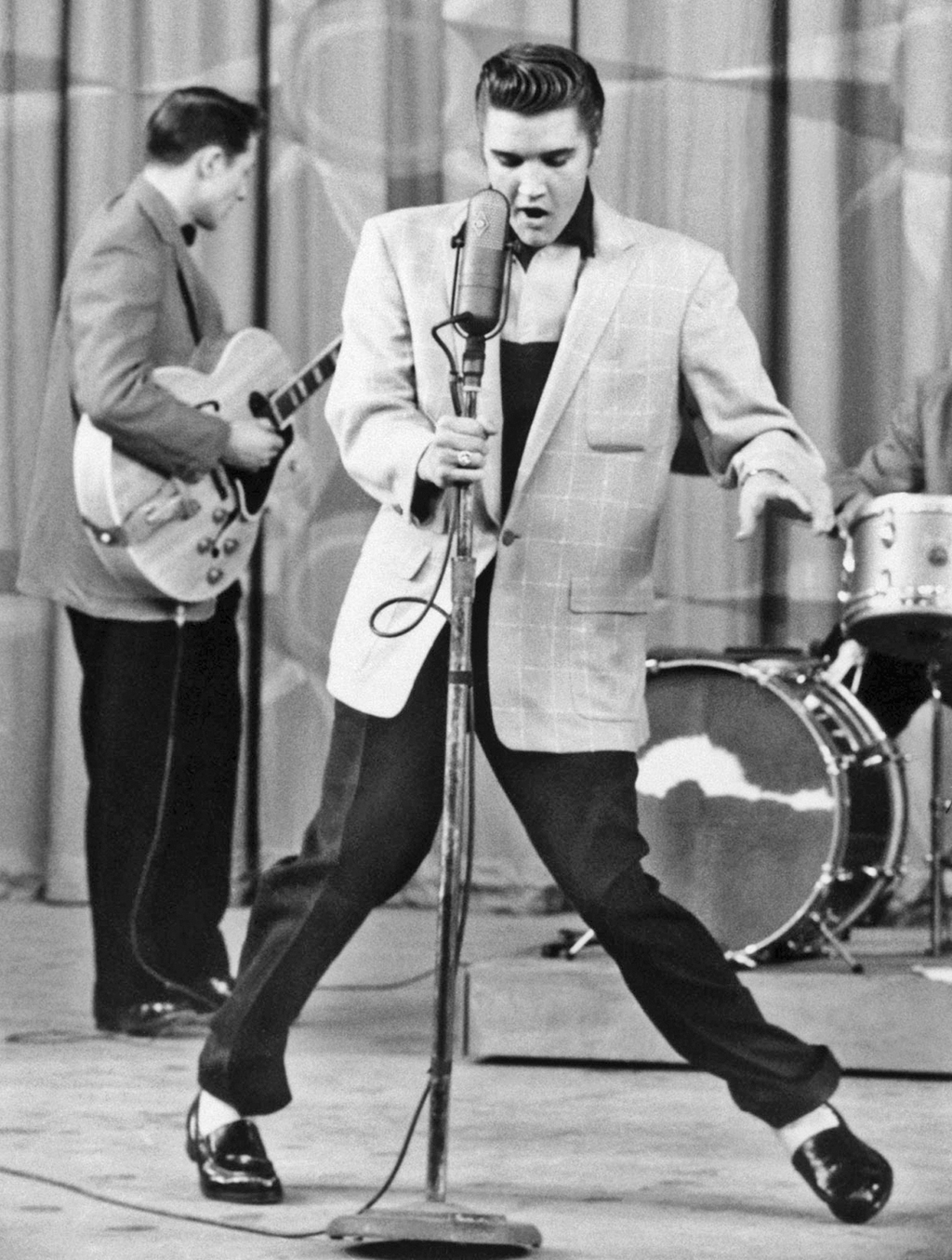By Ali Datko
Elvis Presley was one of the most influential figures in American popular music. The success of his legendary sound — that groundbreaking mixture of rhythm and blues, country-western and Southern gospel — has been debated since its very beginning.
Some say the spotlight was well-deserved; others say it was stolen. At the foundation of the debate, however, lies an undeniable reality that Presley’s rock ‘n’ roll — and the throngs of teenagers who screamed for it — signified a collective force that could no longer be stifled.
In the 1950s, the traditional structure of the American family was evolving. The economic boom that followed World War II provided many families with financial prosperity, and this overflowed into the pockets of the nation’s teenagers. For the first time ever, the young generation represented a demographic with significant buying power.
For better or worse, Presley was marketable. In 1953 he met Sun Studios founder Sam Phillips, whose secretary recalled Phillips saying, “If I could find a white man who had the Negro sound and the Negro feel, I could make a million dollars.” One evening, while taping Elvis’ cover of “That’s All Right,” Phillips knew that he’d hit pay dirt. The recording hit Memphis airwaves just three days later, and in two weeks Presley was onstage playing his first paid gig.
Audiences also witnessed the debut of his notorious pelvis-shaking dance style, which elicited shrieks from white fans who had never witnessed such an evocative display.
Not surprisingly, the old guard was not amused. Critics called Elvis “a danger to the security of the United States” and claimed that pop music had “reached its lowest depths.” But these objections were futile. In November 1955, Presley’s Sun Records contract was sold to RCA Victor for $40,000, and by January the single “Heartbreak Hotel” had reached No. 1 on Billboard’s Top 100 chart.
The age of rock ‘n’ roll had officially dawned, and Elvis Presley was the man ushering it forward. What had once been an uncomfortable gray area between two colliding cultures was now an opportunity for musical expression. Elvis provided a bridge for white Americans who just wouldn’t give Chuck Berry, Fats Domino and all the other rock ‘n’ roll greats who happened to be black a chance.
Throughout his career, Elvis had 18 No. 1 hits, which collectively spent a total of 80 weeks at the top. He starred in 31 feature films, and received 14 Grammy nominations. He has sold more than 1 billion record units — a number that continues to grow.
Since Elvis’ death in 1977, attempts to summarize his legacy have seemed insufficient. To President Jimmy Carter, he was “a symbol to people the world over of the vitality, rebelliousness and good humor of his country,” and to Little Richard an “integrator” and a “blessing.” Bruce Springsteen described him as “big as the whole country itself, as big as the whole dream."
But the most accurate summation was perhaps the one humbly provided by the King himself: “It’s just music.”
If you’re wondering whether fans continue to agree, consider that the King’s estate pulled in a whopping $55 million in 2010.
Brought to you by the publishers of ReMIND magazine, a monthly magazine filled with over 95 puzzles, retro features, trivia and comics. Get ReMIND magazine at 70% off the cover price, call 844-317-3087 or visit remindmagazine.com

